Last Updated on August 2, 2021

PLOT: In the days leading up to her tragic murder at the hands of Charles Manson in 1969, pregnant actress Sharon Tate (Hillary Duff) reckons with eerie premonitions of her vicious murder.
REVIEW: With more than a decade spent toiling away in the documentary horror realm with such exhaustive and hagiographic fan favorites as NEVER SLEEP AGAIN: THE ELM STREET LEGACY and CRYSTAL LAKE MEMORIES: THE COMPLETE HISTORY OF FRIDAY THE 13TH, writer/director Daniel Farrands has finally graduated to narrative feature fiction with not one, but two new horror films in 2019. First, he has THE AMITYVILLE MURDERS bowing theatrically on February 8th, and for our purposes here, Farrands has opted for another dramatic and brazen retelling of a true American horror story in THE HAUNTING OF SHARON TATE. Unfortunately, where the movie succeeds most is in its deeply distasteful disregard for the brutality inflicted on the real life Sharon Tate and how exploitive the concomitant carnage is shown on screen. Where the movie succeeds least is in its intentions. The intention to buck this precise exploitation in favor of a more psychological glimpse into the fractured psyche of Tate in the days leading up to her murder is an abject failure, as it never focuses, fascinates or compels strongly enough to justify or even warrant the aforesaid violent reenactments. That is, the movie wants to be respectful of Tate and her family by telling this story, but ironically may end up being more harmfully unethical than cathartically helpful. It’s been 50 years; I think THE HAUNTING OF SHARON TATE and her family has gone on long enough!
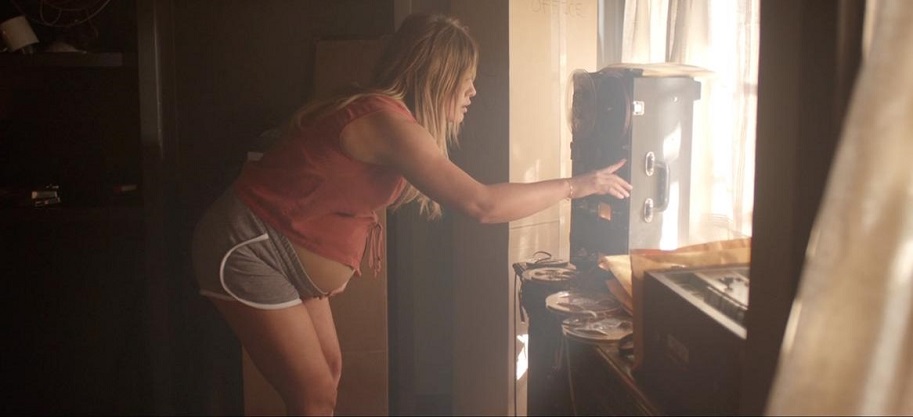
August 1969. Sharon Tate (Hillary Duff) is eight months pregnant with Roman Polanski’s offspring, resting quietly in the Hollywood hills while the ROSEMARY’S BABY director is off prepping his new film in Europe. Left with her pal Jay Sebring (Jonathan Bennett) and drug-addled hangers about Abigail Folger (Lydia Hearst) and Wojciech Frykowski (Pawel Szajda), Sharon almost immediately begins to sense a malefic presence in the area. In fact, prior to her real life demise, Sharon Tate reportedly suffered strikingly accurate premonitions of her grisly fate to come. THE HAUNTING OF SHARON TATE refers precisely to this phenomenon, and as such, attempts to explore those very vile and vivid visions of Tate’s vicissitude. Early in the film we Tate wake up from a nightmare in which she sees herself bound and gagged and before being gruesomely mutilated to death by Manson and his interloping minions. The problem is Farrands’s tautological insistence on replaying the same attack multiple times throughout the movie, once as a premonition, once as the real-time assault, and worse, a third time, when Farrands decides to intercut between the eerily imagined and the ferocious and unflinching reality Tate fatally suffers. It literally becomes overkill for the viewer, not to mention that each time we’re shown the same baleful blitz of Manson’s murderous henchman, the blows lessen and the impact simply detracts.
But the real head-scratcher here is the juxtaposition between where Farrands intended to the movie to excel, and what actually succeeds most in the film. The languid psychological blur Tate is supposed to be enraptured by for the few days prior to her death is what Farrands seems most interested in examining, but the script in this area is too devoid of convincing detail, and the performance by Duff, while perfectly fine and even commendable in spots, simply isn’t nuanced enough, based on such limited scripting, to really capture our hearts and minds as it relates to Tate’s increasing paranoia and spiraling psychological dread. The area that should be most fecund for Farrands to till – emotionally and diegetically – really only comes off as a transitional grey area between the brutally barbarous stints of vicious violence…the one area Farrands likely wanted to avoid or at least deferentially tamp down for Tate’s family’s sake. The so-called HAUNTING that Tate experiences does not come off credibly as a woman in the throes of crazy clairvoyant curse, but Tate’s attack is taken to such exploitive extremes that it, not the haunting, is what one is surely and unpleasantly bound to remember most about the movie. The irony is that the violence is done exceptionally well, but unethically reveled in for a bit too long.
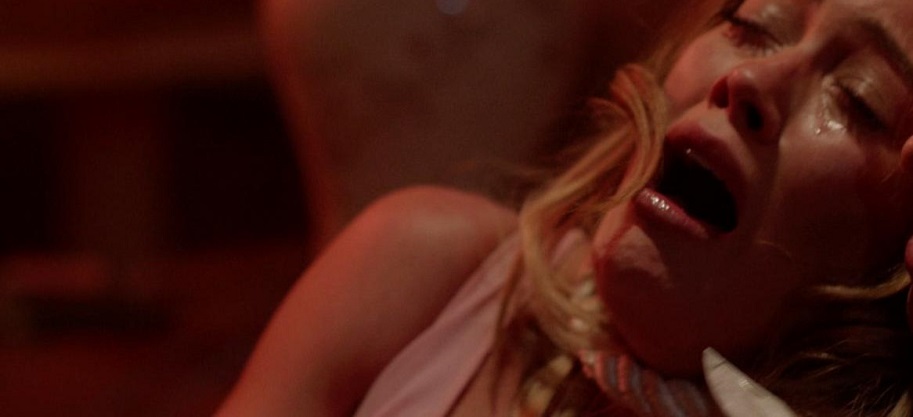
As for Manson (Ben Mellish) and his homicidal harem, they too are just barely, one-dimensionally grim enough to mention. Sadie (Bella Popa), Yellow (Fivel Stewart) and Tex Watson (Tyler Johnson) skulk around the property at odd hours of the day and night, apparently looking for music producer Terry Milcher, whose Satanic backtracking seems to be relaying sinister subliminal messages on the records held in his studio. When Tate catches wind of these messages, her uncontrollable paranoia begins to unravel her mind, leaving her in an un-actionable position to protect herself and her baby. When the Manson family does away with a sweet caretaker and 18-year old bystander named Steven Parent (Ryan Cargill), Tate knows for certain her life is in dire jeopardy. These scenes give the movie a much needed momentum in the third act of the film, but by then, the tasteless exploitation of Tate’s grisly fate has already left one either too gagged or too full-bellied for more. It’s tough to stomach a movie whose intentions sags while its exploitive venality soars, especially when the repetition throughout renders such a bathetic conclusion in the end. All told, THE HAUNTING OF SHARON TATE fails to execute its best intentions, while excelling in being most distasteful.


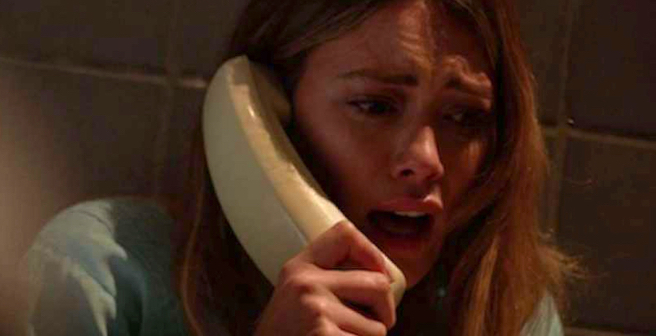




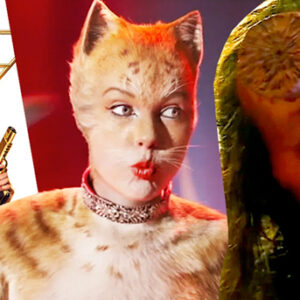

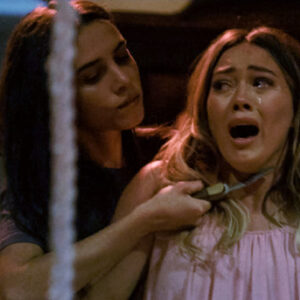











Follow the JOBLO MOVIE NETWORK
Follow us on YOUTUBE
Follow ARROW IN THE HEAD
Follow AITH on YOUTUBE